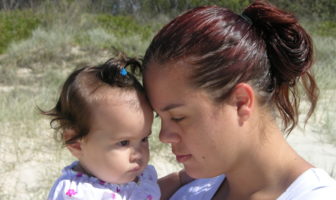Adverse Childhood Experiences (ACEs) are sources of toxic stress in children that have the potential to negatively impact their mental and physical health into adulthood. Fortunately, ACEs can be prevented by Positive Childhood Experiences (PCEs).

Tips to Improve Your Everyday Mental Health
Our mental health is the state of our emotions, feelings, and our overall psychological well-being. Your mental health is just as important as your physical health and the two are interrelated and impact each other. When we work on improving our mental health, we often feel better physically, and vice versa.
It's difficult to make our mental health the top priority when we juggle raising children, working in and outside of the home, and the everyday stressors of life. Throw in a global pandemic and it is no surprise that many of us are neglecting our mental well-being. Now more than ever, it is important to incorporate even a couple of healthy behaviors will benefit your emotional health.
Helpful tips for improving mental health include:
- Take a break during the day to get outside in the fresh air for a walk.
- Turning off the news after half an hour of listening or anytime you start to feel overwhelmed.
- Put your thoughts and feelings down on paper through journaling.
- Eat nutritious foods that include plenty of vegetables and healthy fats.
- Call a friend to talk to when you’re feeling down.
- Aim to get 8 hours of sleep every night.
- Pick a random time during the day to “unplug” and turn off your phone for 1 hour.
If you or a loved one are experiencing mental health issues in Massachusetts, know that you are not alone, and many resources are available to you. The Emergency Services Program is available 24/7 for all mental health crises at 877-382-1609. Additionally, the National Alliance on Mental Illness has information for mental health services and resources in Massachusetts. They also include information for navigating through an immediate mental health crisis and a list of providers and programs near you.
other articles and videos we love
Learn the differences between positive, tolerable, and toxic stress and the steps to combat each one in your daily life.





